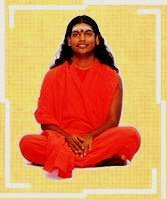All major religions say that they have derived their authority from the Divine. Founders of all great religions are considered to be realized Masters.
Scriptures are the communication media between these founder Masters and their followers. In most cases these scriptures are considered to be of divine origin, though they were committed to writing long after the Masters left the earth.
In Hindu religion, correctly stated as Sanatana Dharma and translated loosely as the Eternal Conduct, Scriptures are two fold, sruti and smruti. Sruti are the truths experienced by the great sages of yore. Though literally sruti means that which is heard, the right translation is that which is experienced.
Sruti is theoretical inner science, whereas smruti is applied inner science. One cannot exist without the other. Smruti are the societal regulations that follow from the experiences of the rishi, the great Masters. From the spirituality of the experienced truth that was sruti, smruti emerged as religion.
Sanatana Dharma is the only philosophy that says its scriptures can be changed. It provided at its very inception the freedom to change the smruti. The great Masters allowed this freedom to their disciples to add, modify, comment upon their recommendation by separating them from their experienced truth.
Vivekananda has said that without freedom no growth is possible. That is why even after nearly 10,000 years after these truths were expressed, they are still followed. Sanatana Dharma, the Vedic religion, now called Hinduism, gave this freedom and is the oldest philosophy and religion that is still practiced by such a large number of people. It is the only religion that has spread without coercion, conversion and proselytizing. That is the reason why it will survive and grow many more thousands of years.
Only people of courage and intelligence can say that their truths are open to be commented upon. The Vedic rishi were of that caliber. How can regulations that were relevant a thousand years ago be relevant today, when the societal structure has changed so dramatically, and with it the political and religious structures? In the Vedic tradition, no one was considered a true Master unless he had studied, internalized and commented upon the scriptures in an original and creative way.
Any philosophy that is bound and frozen in the name of divinity will die. A living religion must have the courage and flexibility to change based on the underpinning of its spirituality.
Free to Grow
Aug 28, 2008 at 2:26 AM

Series:
Words From The Master
![]()


 to view a larger map and get directions
to view a larger map and get directions








